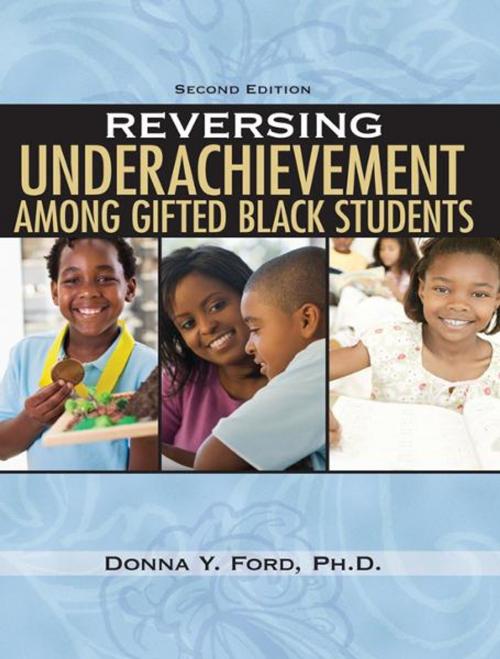Reversing Underachievement Among Gifted Black Students, 2nd ed.
Nonfiction, Reference & Language, Education & Teaching, Special Education, Gifted| Author: | Donna Ford | ISBN: | 9781593637415 |
| Publisher: | Sourcebooks | Publication: | December 1, 2010 |
| Imprint: | Prufrock Press | Language: | English |
| Author: | Donna Ford |
| ISBN: | 9781593637415 |
| Publisher: | Sourcebooks |
| Publication: | December 1, 2010 |
| Imprint: | Prufrock Press |
| Language: | English |
Much has changed (and stayed the same) since the first edition of "Reversing Underachievement Among Gifted Black Students" was published in 1996. Although our nation and schools have changed racially and culturally, with more Black, Hispanic, and Asian students than ever before, our gifted programs and Advanced Placement (AP) classes remain much the same--primarily White and middle class. Two thorny issues that continue to exist in education are the underrepresentation of Black students in these classes and the persistent underachievement of Black students even when identified as gifted. In this edition, these two issues are addressed, with updated information on key social, familial, educational, and psychological factors that contribute to underachievement and underrepresentation. Underachievement and underrepresentation are placed squarely within the larger context of the achievement gap and deficit thinking. A central proposition is that we cannot close the achievement gap unless we eliminate deficit thinking and desegregate gifted education and AP classes. "Reversing Underachievement" is a must-have text that affords readers a comprehensive understanding of how schools, families, and the social, cultural, and psychological matrix all interact to affect both achievement and underachievement.
Much has changed (and stayed the same) since the first edition of "Reversing Underachievement Among Gifted Black Students" was published in 1996. Although our nation and schools have changed racially and culturally, with more Black, Hispanic, and Asian students than ever before, our gifted programs and Advanced Placement (AP) classes remain much the same--primarily White and middle class. Two thorny issues that continue to exist in education are the underrepresentation of Black students in these classes and the persistent underachievement of Black students even when identified as gifted. In this edition, these two issues are addressed, with updated information on key social, familial, educational, and psychological factors that contribute to underachievement and underrepresentation. Underachievement and underrepresentation are placed squarely within the larger context of the achievement gap and deficit thinking. A central proposition is that we cannot close the achievement gap unless we eliminate deficit thinking and desegregate gifted education and AP classes. "Reversing Underachievement" is a must-have text that affords readers a comprehensive understanding of how schools, families, and the social, cultural, and psychological matrix all interact to affect both achievement and underachievement.















